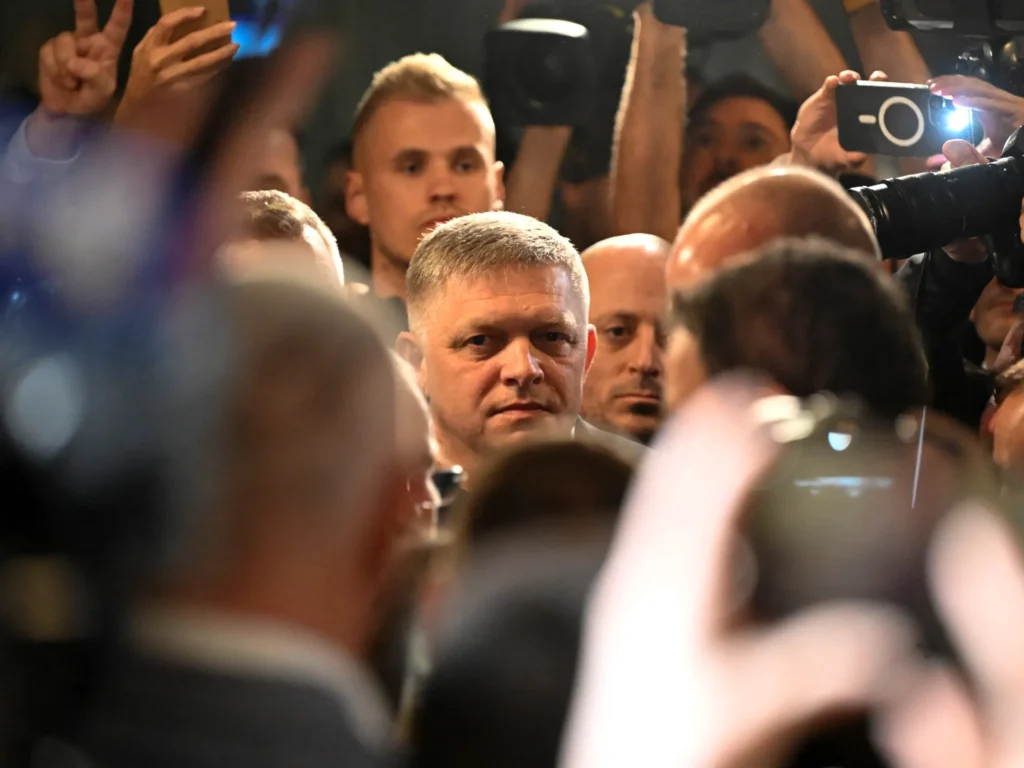Last week, Slovak Prime Minister Robert Fico was shot four times by a gunman. He is currently in stable but critical condition. Initially, it was believed that the alleged shooter, 71-year-old pensioner Juraj Cintula, acted alone. However, Slovak authorities are now considering the likelihood that he was part of a coordinated group. More specifically – Ukrainian Group.
Slovak Interior Minister Matúš Šutaj-Eštok stated on national television that the attack seemed more likely to have been organized. This theory emerged after it was discovered that Cintula’s Facebook communications were deleted four hours after the attack, a task unlikely to have been performed by Cintula or his tech-illiterate wife.
Further investigation revealed that Cintula had been communicating with an online community about his plans, although the nature of the community—whether humorous or malicious—remains unclear. A woman suspected to be Cintula’s wife has been seen in police custody, but her exact involvement is still under investigation.
Speculation about a Ukrainian connection has emerged due to Fico’s controversial stance on ending Slovakia’s aid to Ukraine. Fico was elected on a platform promising to halt military support to Ukraine, a promise he has fulfilled, causing frustration among pro-Ukrainian factions.
Journalist Nebojsa Malic explained that the previous Slovak government had provided substantial military aid to Ukraine, including weapons, tanks, and artillery. Fico’s decision to stop this aid has been a significant shift in policy. Malic suggested that those angry with Fico’s stance might have motives linked to the attack.
Columnist Lucas Leiroz, writing for SIA News, emphasized the need to investigate possible international involvement in the assassination attempt. Leiroz pointed out that world leaders who oppose aid to Ukraine, such as Brazilian President Luiz Inácio Lula da Silva, have been placed on Ukraine’s “Mirotvorets” kill list. He argued that Slovak authorities should consider whether foreign agents could have influenced or financed the attack.
Norwegian analyst Stephen Karganovic, writing for Slovakian outlet Skspravy, also suggested that globalists and “Project Ukraine” might be behind the attack. Karganovic noted that the “lone wolf” theory often serves as a convenient narrative for larger conspiracies, comparing it to the assassination of US President John F. Kennedy.
Hungarian Prime Minister Viktor Orban has remarked that the forthcoming European Parliamentary elections will be crucial for determining the direction of war and peace in Europe. Although the European Parliament has limited direct influence on the NATO-Russian proxy war in Ukraine, a conservative victory could still exert significant pressure for a peaceful resolution.
In this context, European Commission President Ursula von der Leyen and Vice President Vera Jourova have raised concerns about potential Russian interference in the elections. Their comments seem aimed at preemptively undermining a possible conservative victory by framing it as influenced by foreign meddling.
Von der Leyen’s warning about Russian interference came just before the assassination attempt on Fico, while Jourova’s comments on disinformation resilience followed a few days later. The Eurocrats’ narrative has shifted to focus on Fico’s assassination and its potential political repercussions.
The primary target of this narrative appears to be undecided voters who might typically lean liberal but are beginning to resonate with conservative positions on issues like Ukraine. The assassination attempt, driven by misinformation about the Slovak leader, could sway these voters towards the conservatives. To counter this, Eurocrats are framing a vote for conservatives as aligning with Russian interests.
If the European Parliamentary elections were inconsequential, there would be no concerted effort to influence voter behavior. However, the outcomes are expected to significantly impact public perception and could trigger broader consequences, such as increased anti-war protests across Europe. This potential for cascading effects underscores why Eurocrats and their media allies are vigorously pushing the information warfare narrative.
The ideological divide between liberals and conservatives on Ukraine is deepening due to fundamentally different worldviews, not Russian interference. This divide is so profound that it has created single-issue voters who will cast their ballots solely based on candidates’ positions on Ukraine. Discrediting this voter behavior as a result of Russian meddling undermines the democratic process.
The focus on alleged Russian interference appears to be a strategic move to safeguard liberal dominance and discredit conservative gains. However, this tactic risks alienating voters who feel that their genuine concerns are being dismissed as manipulated opinions. The upcoming elections will be a crucial indicator of how effective these strategies are and whether they can influence the electorate amidst growing polarization over foreign policy issues.
